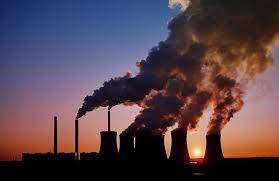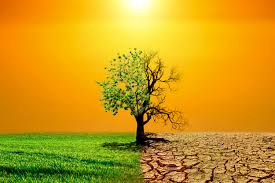Global Warming- Cause, Effects & Mitigation
Introduction
Global warming refers to the long-term warming of the planet’s overall temperature. Since the Industrial Revolution, the global annual temperature has significantly increased about little more than 1 degree Celsius.
As the human population has increased the burning of fossil fuel has increased. Though global warming going on for a long time, for the last 40 years, it has been noted that global annual temperature rise by 0.18 degrees Celsius per decade.
When the sun’s rays penetrate the atmosphere, but when that heat is reflected off the surface cannot escape back into space is called greenhouse effect. Gases produced by the burning of fossil fuels prevent the heat from leaving the atmosphere. The excess heat in the atmosphere has caused the average global temperature to rise overtime, otherwise known as global warming.
Global warming has created the issue of climate change which poses a serious threat to life on Earth in the forms of widespread flooding and extreme weather condition. Climate change refers to changes in weather patterns and growing seasons around the world. The extreme droughts, wildfires, floods, tropical storms, and other disasters are examples of climate change.
Causes of Global warming
Global warming occurs when carbon dioxide and other air pollutants collect in the atmosphere and absorb sunlight and solar radiation that have bounced off the earth’s surface. Normally this radiation would escape into space, but these pollutants, which can last for years to centuries in the atmosphere, trap the heat and cause the planet to get hotter. These heat-trapping pollutants, specifically carbon dioxide, methane, nitrous oxide, water vapor, and synthetic fluorinated gases are known as greenhouse gases, and their impact is called the greenhouse effect.
Apart from natural cycles and fluctuations, our current era of global warming is directly attributable to human activity mostly due to burning of fossil fuels such as coal, oil, gasoline, and natural gas, which results in the greenhouse effect.

Other Effects
- Disappearing glaciers, early snowmelt, and severe droughts will cause more dramatic water shortages and continue to increase the risk of wildfires.
- Rising sea levels will lead to even more coastal flooding.
- Forests, farms, and cities will face troublesome new pests, heat waves, heavy downpours, and increased flooding. All of these can damage or destroy agriculture and fisheries.
- Disruption of habitats results in many plant and animal species to extinction.
- Allergies, asthma, and infectious disease outbreaks will become more common due to increased growth of pollen-producing ragweed, higher levels of air pollution, and the spread of conditions favorable to pathogens and mosquitoes.

Ways to mitigate Global warming
- Use renewable energy
- Energy-efficient appliances– Energy efficiency is the lowest-cost way to reduce emissions. So, when go to purchase appliance care must be that it should be energy efficient.
- Reduce water waste- Saving water also reduces carbon pollution. That’s because it takes a lot of energy to pump, heat, and treat your water.
- Don’t waste the food, and compost if leftover– wasting less food cut down the energy consumption as growing, processing, packaging, and shipping of food use enough energy. Collect leftover food in a compost bin instead of sending them to the landfill where they release methane. Recycling food and other organic waste into compost provides many environmental benefits, including improving soil health, reducing greenhouse gas emissions, recycling nutrients, and mitigating the impact of droughts.
- Rein power use- As possible, switch to a zero-carbon or renewable energy provider. Use solar panel and be more efficient. Switch off appliances and lights when you are not using them.
- Drive a fuel-efficient vehicle- transform your transport, it reduces emission of greenhouse gases. Rethink planes, trains, and automobiles.
- Plant trees- Stop deforestation, plant more trees and protect biodiversity and rebuild ecosystems.
- Reduce, reuse, and recycle.
- Spread awareness– Encourage your friends, family and co-workers to reduce their carbon pollution. Speak via social media and other platforms that you care about the warming world.
- Political pressure and laws- put political pressure about environment issue, ask for enacting proper law.
- Focus on planet friendly investment.
Read also…
Greenhouse Effect